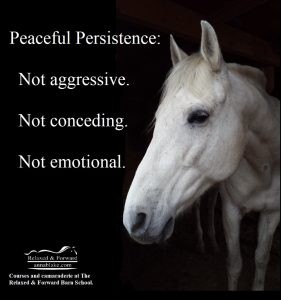Horses possess remarkable cognitive abilities, but how do they truly measure up against human intelligence? While often compared to 3-year-old children in terms of certain cognitive skills, the reality is more nuanced. This article delves into the complexities of equine intelligence, challenging anthropocentric views and exploring how horses perceive the world.
Equine Intelligence: Beyond Simple Comparisons
The notion that horses possess the intelligence of a 3-year-old child stems from observations of their abilities to recognize themselves in mirrors, comprehend basic human emotions, and learn commands. While these are impressive feats, comparing equine intelligence directly to human intelligence through a human-centric lens overlooks the unique ways horses process information and interact with their environment.
In a natural setting, a horse’s intelligence far surpasses that of a human toddler. Horses demonstrate advanced social intelligence within their herds, exhibiting complex communication through subtle body language known as “calming signals.” They possess an acute awareness of their surroundings, constantly scanning for potential threats and reacting with remarkable speed and agility.
 Horses in a field demonstrating calming signals
Horses in a field demonstrating calming signals
The Flawed Logic of Human-Centric Comparisons
Judging animal intelligence based on human standards is inherently flawed. We tend to prioritize cognitive abilities that align with our own strengths, such as language and abstract reasoning, while overlooking other forms of intelligence. Horses excel in areas that humans may find challenging, such as spatial awareness, sensory perception, and social communication within their own species.
Imagine a horse observing a human child stumbling and falling. The horse, with its heightened senses, would have noticed the child long before the fall, perceiving subtle cues that the child missed. The child’s noisy reaction to the fall might seem illogical to the horse, whose communication relies on nuanced body language and quiet observation.
Reframing the Question of Intelligence
Instead of asking how intelligent horses are compared to humans, perhaps we should ask: How do horses demonstrate intelligence within their own context? Researchers like Jane Goodall have championed the importance of studying animals in their natural habitats to gain a true understanding of their behavior and cognitive abilities. Removing a horse from its herd to conduct intelligence tests introduces stress and anxiety, potentially skewing the results.
The Emotional Intelligence of Horses
Science confirms that horses possess high emotional intelligence, capable of reading human facial expressions and body language. This ability is likely rooted in their innate sensitivity to social cues within their herds. However, attributing their responsiveness to human emotions solely to affection overlooks the complex dynamic between predator and prey. Horses in human care may exhibit behaviors interpreted as love or friendship, but these could also be survival mechanisms developed in response to their dependence on humans for food and shelter.
Beyond Anthropomorphism: Letting Horses Be Horses
Rather than projecting human emotions and motivations onto horses, we should strive to understand them on their own terms. Instead of viewing them as therapists, best friends, or emotional support animals, we should appreciate their innate intelligence and allow them to express their natural behaviors. By abandoning anthropocentric comparisons, we can begin to appreciate the true brilliance of equine intelligence.
Recognizing True Equine Intelligence
Instead of focusing on how horses measure up against human intellect, future research should investigate their unique cognitive strengths. How do horses navigate complex social hierarchies within their herds? How do they learn and adapt to changing environments? By asking these kinds of questions, we can move beyond simplistic comparisons and gain a deeper understanding of the intricate minds of horses.